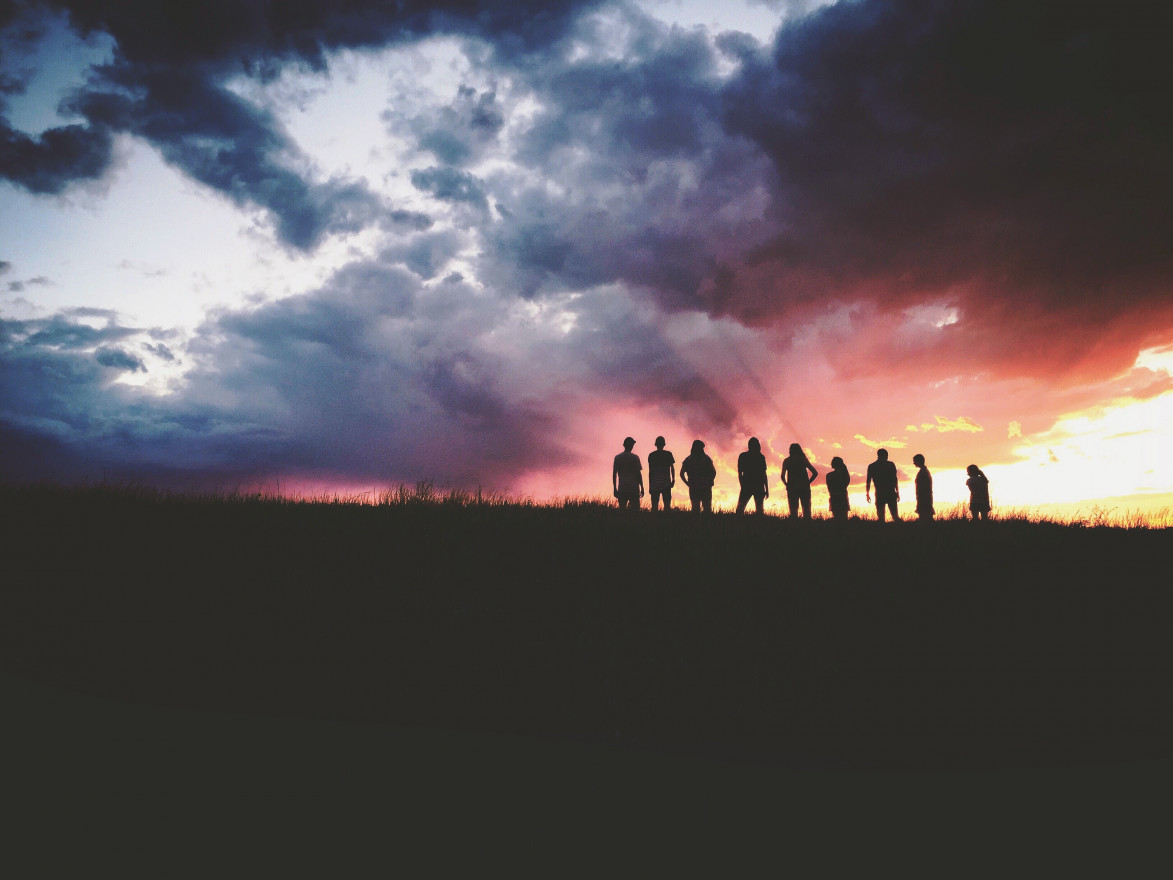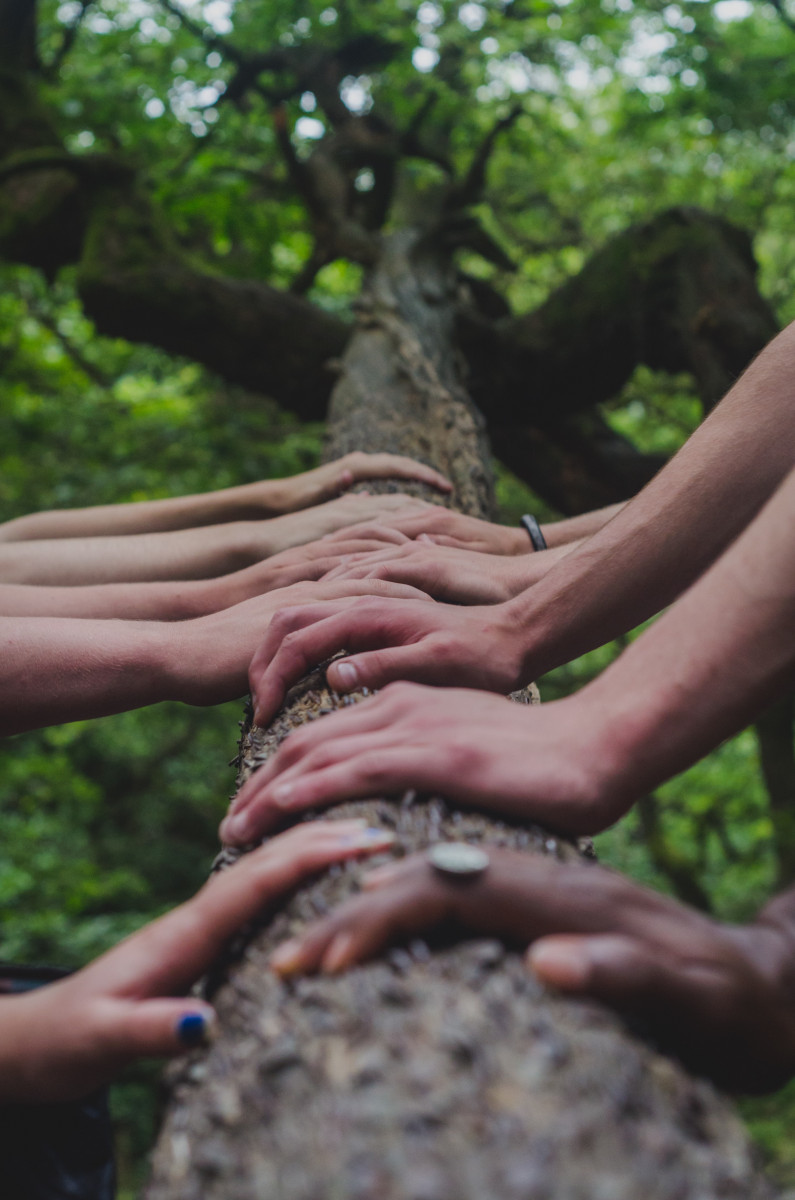
(Hudson Hintze/Unsplash License)

(Hudson Hintze/Unsplash License)
Coming of age amidst a climate crisis can be scary, isolating, and confusing. Youth, who will bear the brunt of this crisis, also have the least agency in decision-making.
Finding places where you know you matter is life-changing. I clearly remember the first time I knew my opinion mattered and that I was not alone in these feelings. During my sophomore year of high school I, along with about 100 other students, attended the Western New York Youth Climate Summit, hosted by Buffalo State College.
I left that summit feeling less doubtful about my place in my community, and the connections I made there encouraged me to study the environment in college. When I saw a poster for a climate summit just outside of my college town, I knew I had to attend.
Shortly after signing up for the event, I was connected to Amy Samuels, the education coordinator at the Onondaga Environmental Institute, a nonprofit local to Syracuse. Along with a few local teachers, Samuels was leading the efforts to organize the first climate summit in Central New York.
Much of the framework for climate summits comes from the Wild Center, an outdoor education center in New York’s Adirondack Mountains. They hosted the world’s first youth climate summit in 2009, and since then more than 70 have occurred in 11 states and 5 countries.

“It is about giving agency to youth voices, to let them know they have a community,” Samuels told me a few weeks before her summit. Though not all summits are associated, they are mainly centered around that theme. Some are planned by climate groups like Zero Hour, while others, like the summit I attended in Buffalo, are planned by teachers.
Summit leaders often collaborate with each other, sharing their successes and failures. “It’s about serving local communities, thinking about what’s unique to your youth,” Samuels said of the process. “It involves a lot of reaching out to teachers and other summits and getting their input.”
Relevancy to issues youth have experienced makes summits more meaningful. A summit in Miami, hosted by the nonprofit Zero Hour, focused largely on rising sea levels, toxic algae blooms, and racial justice, while one in Tupper Lake, New York, focused on their state’s Climate Smart Community program.
Beyond providing a forum to discuss the physical threats of climate change, climate summits can help ease the mental and emotional challenges youth have experienced over the past few years. A study by CNBC found that 45% of youth feel anxiety about climate change that affects their daily life. “It’s been a hard few years, and more than anything I want to give people together around creativity and community,” Samuels shared with me as we discussed mental health.
She hopes that the youngest participants, in 7th grade, will come back for the rest of their high school career, developing leadership skills and friendships. The Wild Center’s framework involves former participants, now in college, aiding in the planning process. Samuels knows a lot goes into creating a community. “We have to make sure people are having fun. Participants should be laughing, creating art, and connecting with each other,” she said.
I also attended the Mohawk Valley Youth Climate Summit at the end of October. About 30 youths from the Central New York region spent the day together doing workshops on everything from tree identification to cooking. The day ended with creating a climate action plan, which asks youth to think of something they can do in their school or community that will help the environment.
These plans ranged from finding composting options for schools to encouraging local governments to declare a climate emergency. Participants mulled over their options, discussed things they were passionate about, relayed what they had heard their parents talking about, and voiced appreciation for teachers they felt could give them support.
As the day wound down I heard laughter and saw lots of smiling. “I love doing stuff with my hands, and it was so cool to learn about trees. No one else really teaches that stuff,” Sarah H., an 8th grader from Rome, New York, told me.
After that day, I found myself wondering if I’d just witnessed something pivotal for this community. The U.N. states that educating children about climate change is essential, both for their understanding of our world and their sense of hope and agency. Reading this, I found myself grappling with the pressure we put on youth, and what truly gives people an environmental ethic.
In my search for answers, I met with Val Zimny, a college student in Buffalo and a former youth climate activist. “I was really anxious in high school. I’ve always been a bit of an overachiever, so when I attended the youth climate summit [in 2018] it was natural for me to take on the biggest task possible,” they told me over Zoom. That task was the formation of a youth climate council for western New York. Their group met with community groups and public officials to get the city of Buffalo to declare a climate emergency.
“I’m proud of what we did, of course. But I also wonder what I missed out on in high school and how the whole experience affected my mental health. Now, I think the most important thing is for everyone, but especially young people, to go outside and connect with each other and the earth. We feel responsibility for the things we love, and I think that’s where the real power is when combating climate change,” Zimny said.
Their powerful words made me think about the youth climate movement in a new way.
“Of course, you’re always asking yourself that question: Is this a good thing?” Samuels said. “But honestly, we got the kids outside, we brought them together, we had them laughing. Every person is going to leave something like this impacted differently, but I think we did a good thing.”